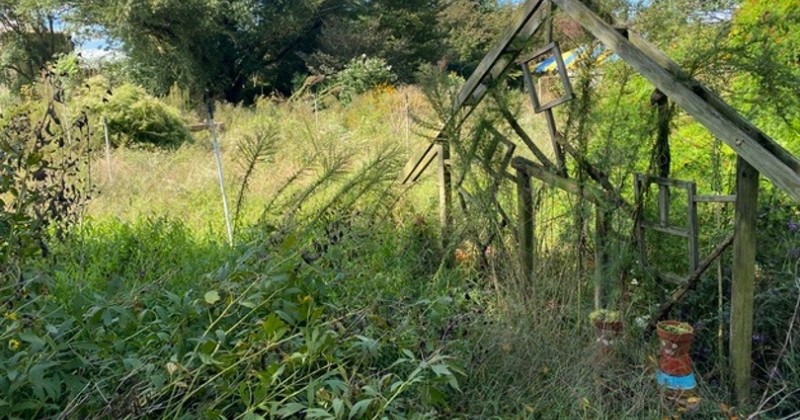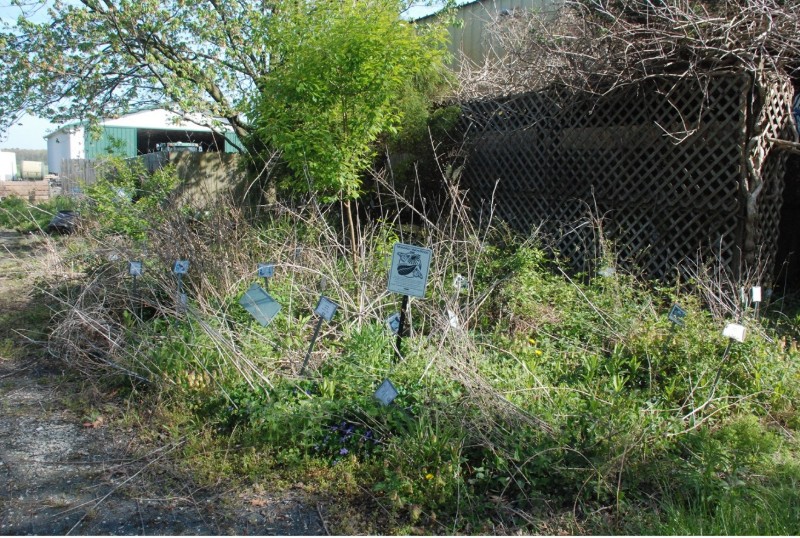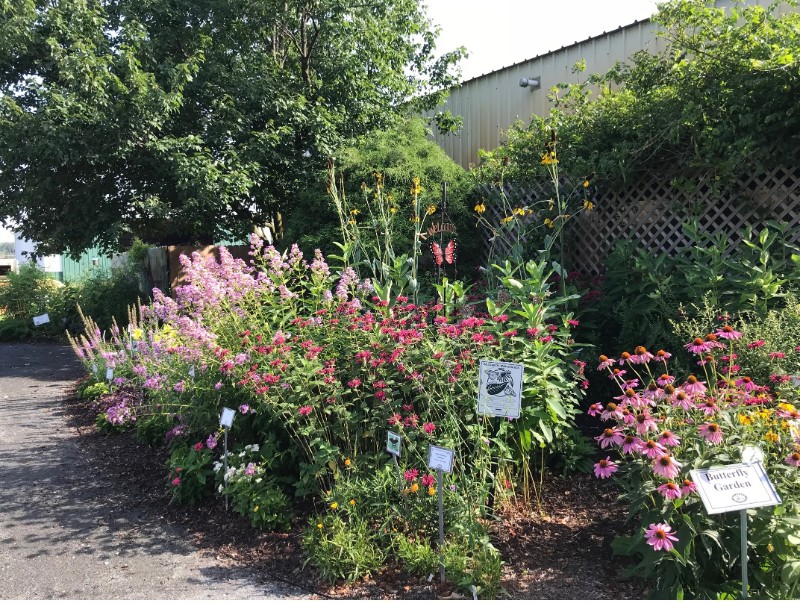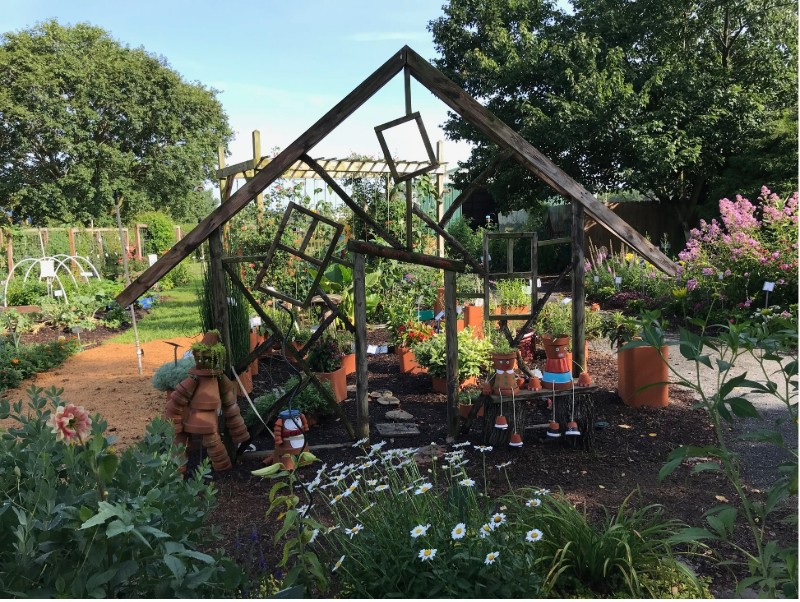
Category: Cooperative Extension

A garden transformed
October 08, 2021 Written by Michele Walfred and Gaye Mara | Photo by Michele Walfred, Gaye Mara and Carol Kinsley
Year-and-a-half hiatus creates teachable moment for Master Gardeners
The weeds didn’t get the message. They didn’t keep their distance.
For 18 months of the COVID-19 pandemic, in an abundance of safety, staff and volunteers at the University of Delaware Carvel Research and Education Center were told to stay home.
So UD staff and Master Gardeners, volunteers who are trained by Cooperative Extension staff, were relegated to Zoom. Meetings and outreach programming continued; attendance at virtual workshops thrived. But, so did the weeds in the garden they left behind. The power of nature reigned supreme and, as a result, a lovingly tended landscape quickly reverted to a towering jungle of weeds. The unprecedented transformation was heartbreaking to witness.
Sussex Master Gardeners Transform Their Garden: youtube.com/watch?v=dji4qG-jZgQ
“It looked like the zombie apocalypse,” said Tracy Wootten, Sussex County horticulture extension agent and Master Gardener coordinator. “It was unreal. When we couldn’t come in, nature took over. It did not stop when we did.”
In November 2019, the Master Gardeners put away their tools and a beloved one-acre demonstration garden to bed, oblivious to the future. A crew of more than 50 expected to return in March for winter clean-up and to commence work on an outdoor venue to host workshops, tours and their “A Day in the Garden” open house.

A haunted garden might have worked as 2020’s open house theme, but scary wasn’t in the plans. The pandemic prevented the popular open house, but the cancellation was a blessing. Sussex Master Gardeners needed time — lots of it.
“When I saw the jungle that took over the garden, I was reduced to tears,” wept longtime volunteer Carol Kinsley. “We had so much work ahead of us!”
Heartbreaking as it was to see years of hard work engulfed in unruly vegetation, the volunteers rolled up their sleeves and got to work. They set and reached an optimistic goal — host an open house in five months.
Beginning in May, Master Gardeners prepared with a detailed work and weed-removal plan and a vision for the garden’s glorious return. Armed with tools and supplies of weed-blocking cardboard and newspaper, the team plunged into the wilderness. They laid garden paths, cleared and mulched garden beds, renewed or replaced treasured plants and carted away truckloads of weeds.
In late September, the public returned for the 2021 edition of A Day in the Garden. The only evidence of landscape trauma were pictures on display. The long absence became a positive, teachable moment as the team used a variety of techniques to combat the weeds.

Since Master Gardeners use organic methods, herbicide weed removal was not an option. Instead, they tried several methods — covering the weeds with black or clear plastic to solarize; the team employed inexpensive, readily available materials such as cardboard in combination with mulch. The Master Gardeners documented the techniques, making the information and demonstration plots available to the public.
During the open house, picture-perfect weather drew in more than 200 community members to the open-air display of more than 30 specialty gardens. Children once again hop-scotched under a trellis. Photographers captured pollinators. Visitors imagined tea for two on the patio as they jotted down plants to grow at home. Farmer McGregor and Peter Rabbit delighted parents and grandparents with their puppet show about healthy vegetables. Under a blue and gold tent, Master Gardeners and Extension agents happily answered questions. Visitors meandered through the paths, rested on benches and admired the scenery.
“What happened to this garden is a testament to the impact volunteers can have,” said Wootten. “When human beings left the scene, the garden reverted to an almost unrecognizable state. It’s a striking example of how important our Master Gardeners are and the impact of their caring attention to the landscape.”

